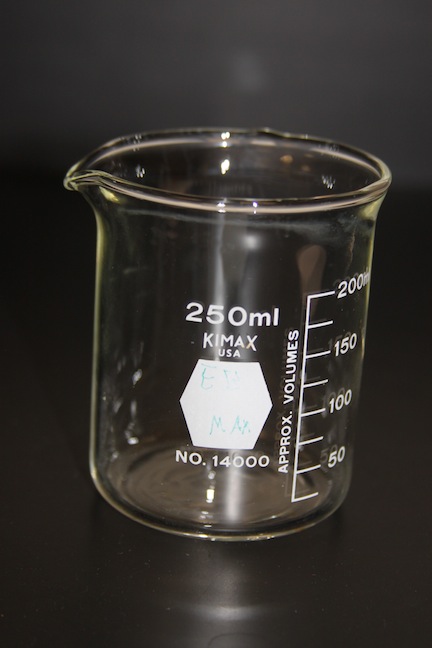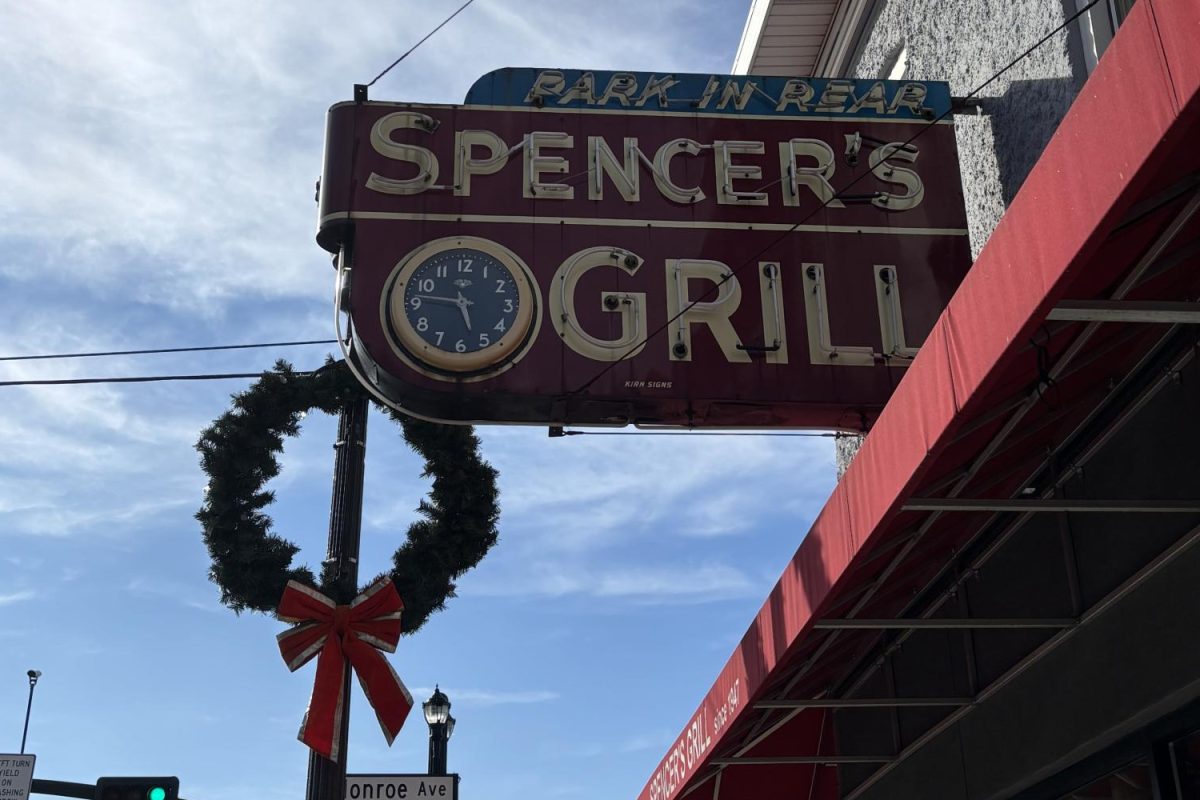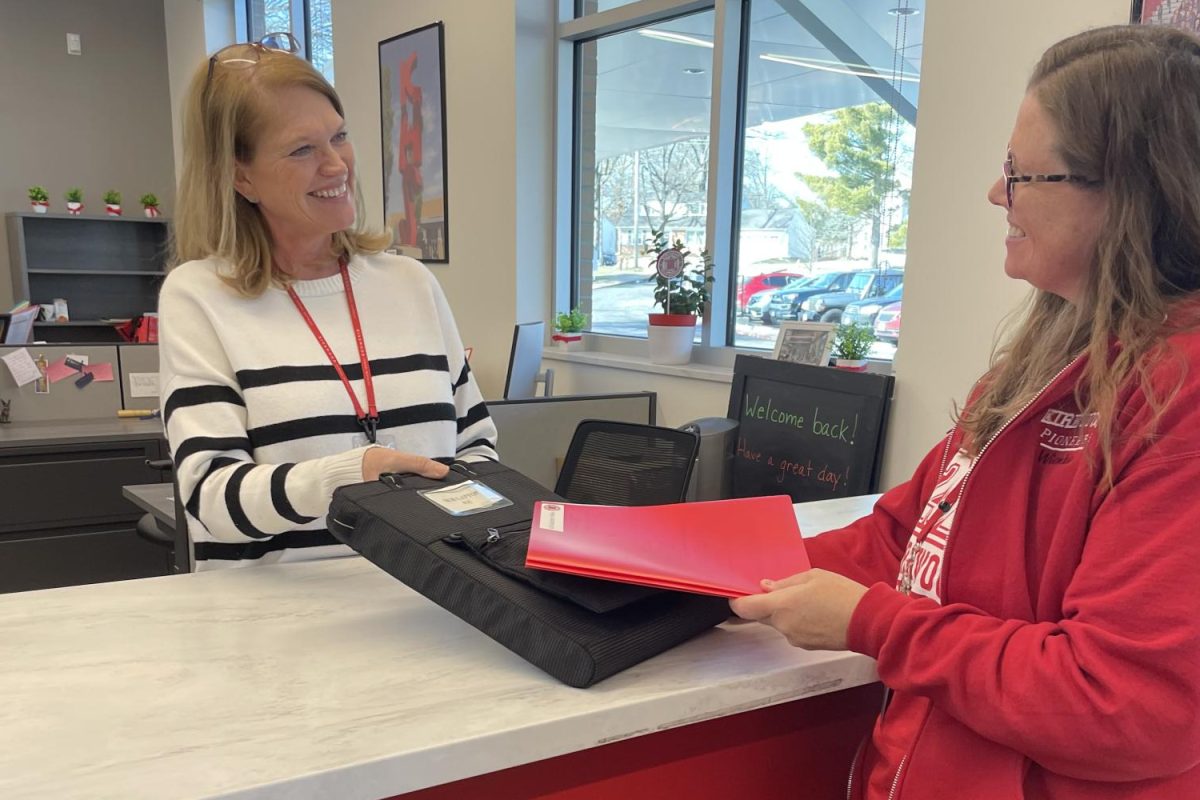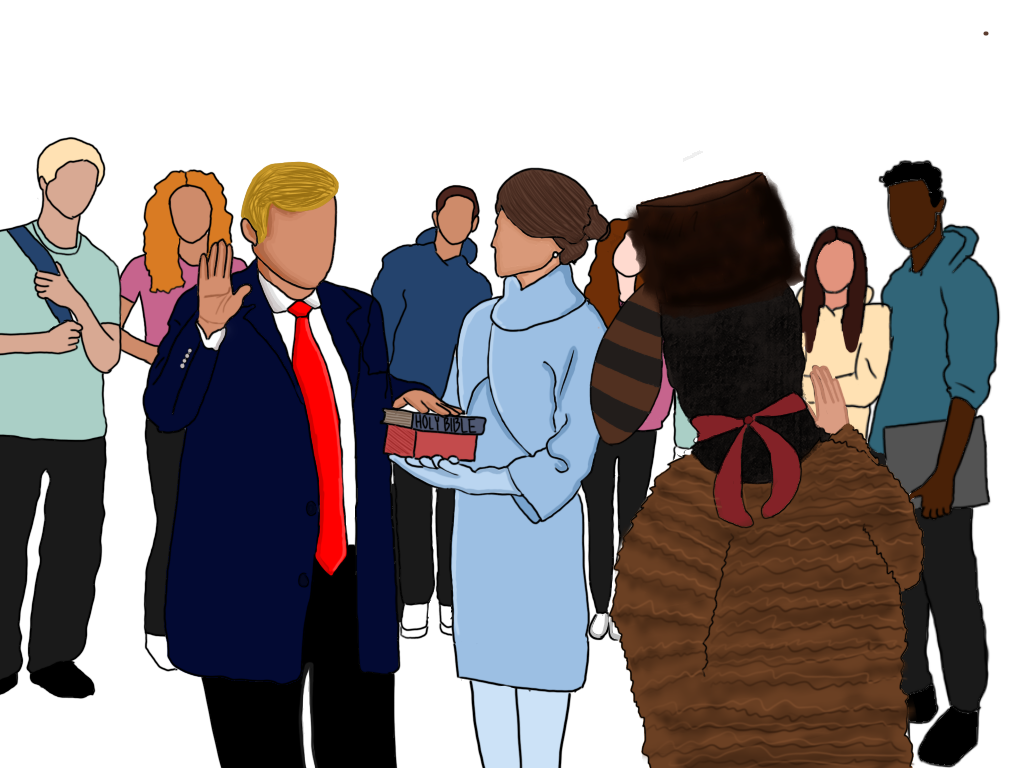A neurobiological diagram depicting functional neuron configurations in the cerebellum is projected on the screen in the Keating Theater. The lighting is dim, a bright spotlight shines on a massive podium and students sit scattered in the audience. Dr. June Bourque, science teacher, walks on stage and the room gets quiet, cueing her to introduce Dr. Timothy Holy, neurobiologist, who is the presenter of what everyone has gathered to see: the Science Speaker Series.
“We kind of lure [students] here,” Bourque said jokingly. “Most come because we offer them extra points, but, in turn, they learn about science in the real world and the career opportunities in science.”
There is also a scholarship eligible to students if they attend the Speaker Series. Bourque said the scholarship is about $250 and is funded by the St. Louis Academy of Sciences.
“Most students that attend come from some sort of a science class, so the scholarship is sometimes used toward science, but it can be used for whatever,” Bourque said. “You can use it for buying books or something. It does not say you have to major in science.”
Attending the Science Speaker Series is not only an educational opportunity for students, but teachers are also able to use it to improve student’s response skills.
“We often ask them to write about the Science Speaker Series, so it makes them listen better. They are more attentive and it also makes them give feedback,” Bourque said.
Students, like Bennett Pruitt, sophomore, also think that the Science Speaker Series helps them academically.
“I believe it helps me expand my knowledge in science, and it provides extra thought provoking insight,” Pruitt said.
Pruitt is currently taking Honors Chemistry, but can easily find connections in non-chemistry lectures with class.
“The comet [lecture] was probably more based on biology and astronomy, but it also helped me learn about chemistry because they talked about the chemical composition
of comets.”
Some students, like Pruitt, go to the seminars simply out of interest in the subject.
“I go to the Science Speaker Series because science is my favorite subject,” Pruitt said. “I may even want to major
in it.”
Others, like Madison Baer, junior, attend the Speaker Series simply as something to do with friends.
“I went sometime in the winter my freshman year and it was about training monkeys following patterns with their brains,” Baer said. “Some friends said they were going and the subject sounded interesting so I figured ‘Why not just go to it tonight?’”
Although Baer attended the sessions for recreational purposes, he said he they also helped him gain new perspective on scientific careers.
“I had always been interested in being in a scientific field for work, like biology or chemistry or bio-chem, but [the Speaker Series] broadened my mindset on what I can do in the scientific world,” Baer said. “It made me think of the obscure things in the world I could do for a job.”
While attendance is good at the speaker series, Bourque said every student can benefit from attending a lecture.
“It’s fun, it’s exciting and you will learn things,” Bourque said. “It is like watching National Geographic, but live.”









